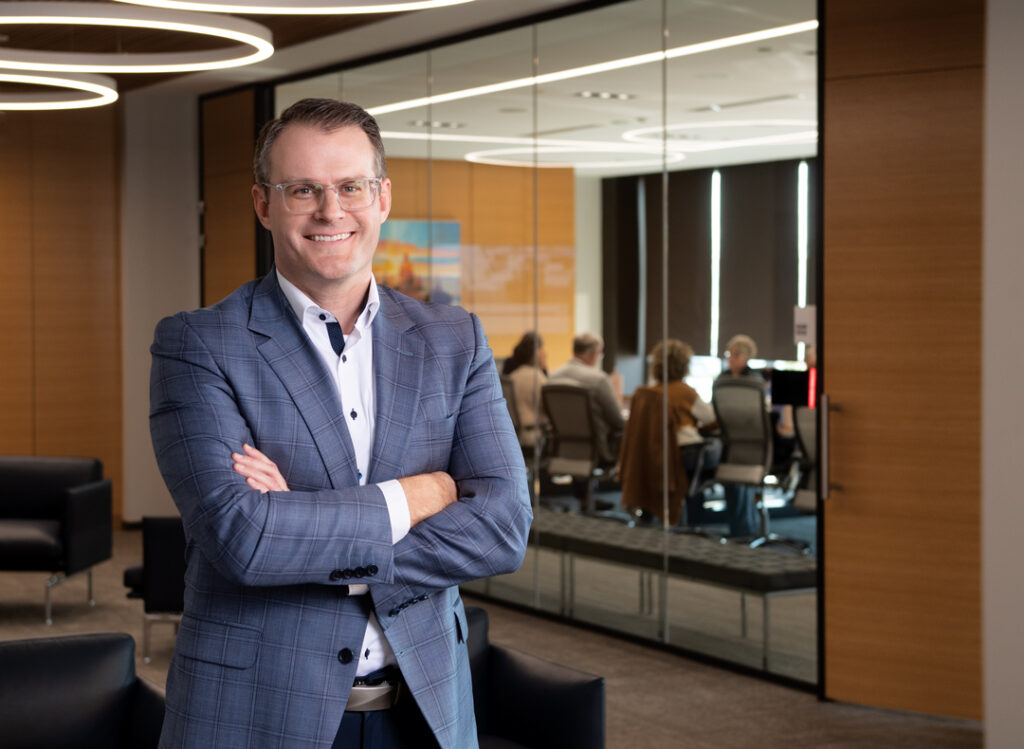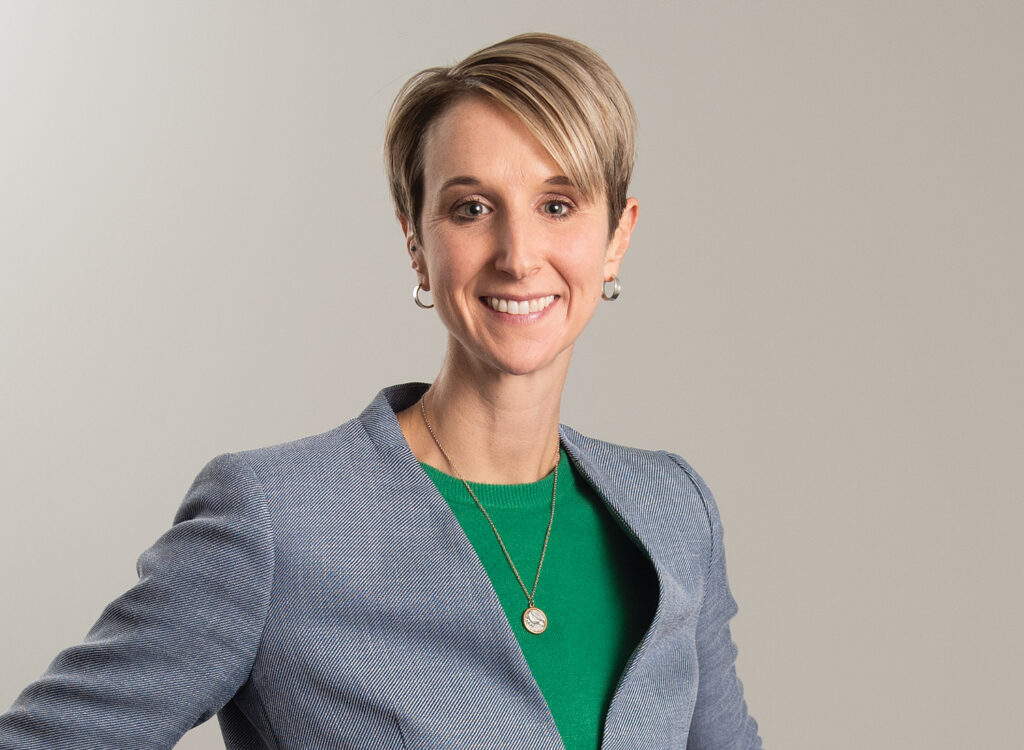JT Logistics builds on culture amid COVID
Co-owner Jamie Cord seeks to replicate legacy of Richard Jacobson

Two years ago, Jamie Cord and his partners were at a figurative crossroads in the growth of their company.
It was February 2020, and Cord, then president of MYA Logistics, had just presented an expansion opportunity to his business partners — one that would require going out on a limb to lease some additional buildings. Because his partners were nearing retirement, they were reluctant to take on that level of risk, and they suggested the company just focus on its existing profitable customer base, rather than pursue expansion.
“My growth plan is much different than that,” Cord recalled telling his partners. “Would you guys have any interest in divesting?” To his surprise, the answer was yes, and in May 2020, Cord relaunched the company as JT Logistics, named for the first initials of himself and the owners of the company, including co-worker and partner in the business, Troy Strawhecker.
“That was really kind of a pivotal moment for us, because we got into more of a risk-reward situation where we were going after the opportunities that were in front of us,” Cord said.
Since then, the Des Moines-based third-party logistics (3PL) company has undertaken significant expansion during the pandemic, at a time when supply-chain bottlenecks have encouraged many of its manufacturing customers to boost warehousing of critical parts and supplies.
In less than two years, JT Logistics has more than tripled its operational footprint to more than 2.5 million square feet by acquiring seven additional warehouses, and has increased its head count to 140 employees. The company was recognized in 2021 on the Inc. 5000 list as one of the fastest-growing businesses in the country, with 82% revenue growth over the past three years.
Notably, one of Cord (and partners’) acquisitions was the former Jacobson Companies corporate headquarters in Des Moines, where Cord previously worked in the building with Richard Jacobson, the late founder of the Jacobson Cos. Now, as the leader of his own company working from Jacobson’s former office, Cord aims to replicate Jacobson’s successful business strategy, along with a culture and philanthropic approach based on his principles.
“The biggest reason why all [the growth has] happened is the culture,” Cord said. “I’m trying to replicate what Dick Jacobson did in some form or fashion. He knew everybody in the building — their name, their wife, their hobbies, what they did on the weekends — he cared about everybody. That’s what I’m trying to do — build a culture of family and a vision that everybody can get behind.”
Similar to Jacobson’s growth, JT Logistics has evolved to develop services for customers outside of warehousing. The first spinoff predates JT Logistics when MYA Logistics in 2018 started a transportation arm, which now has 18 tractors and 36 trailers. Within the past two years, JT Logistics has launched its own brokerage company, staffing firm and industrial services company. “So we’ve really evolved from just a little warehouse company into a full third-party logistics solution,” Cord said.
While it’s now primarily a Midwest 3PL, with warehouses in Greater Des Moines, Ames, Grinnell and Iowa City, “we’re about to take the show on the road,” Cord said. JT Logistics is now looking to open warehouses in Minneapolis and Omaha as well as Reno, Nev. But that’s just the start. The company’s five-year growth plan calls for expansion into 14 major cities, among them Phoenix, Houston, Dallas, Atlanta, Harrisburg, Chicago, Columbus, Indianapolis, Seattle and Tacoma.
“We’re going to become like the next Jacobson Cos.,” Cord said. “When I left Jacobson [after it was acquired by XPO], they had about 35 million square feet over about 30 different states, and 10,000-plus employees. My goal is to just do that again, and to be honest with you, the fun part is not the growth. It’s the people you get to work with and the smiles and the people that are really proud of what they’re doing.
The ability to give back in a way that Jacobson gave back is also a big motivator for him, he said. “I cannot wait until we have that ability to put up an athletic center or hospital. That’s what drives me — to be able to help people.”
What do you see as the outlook for the supply chain in the next couple of years?
I think things are going to stay this way or even get more constrained for the next 18 to 24 months. Especially with now this new strain potentially of COVID, I don’t see anything really changing. I think more people are going to go to e-commerce and shop less outside of their doors. There will be more and more distribution centers for small parcels, pick and pack direct-to-consumer-type solutions. So I don’t see the supply chain industry changing — it won’t be going backwards. … The good part about it is with a bigger footprint and more people, it’s easier to work with the larger customers because if you’re a bigger company producing great results, more people trust you to give you their business.
What challenges are there for you and other 3PL companies?
The challenges have been labor and pay rates. And a lot of the issues that the government has kind of “helped us with” as far as unemployment assistance made it challenging. Our pay rates have gone up almost 25% this year, to be able to employ people in the same positions as a year ago or a year and a half ago. Now that’s not a negative, it’s just what it is.
One of the challenges also is that with the growth of this industry, that capacity and in warehousing has become very hard to find new buildings. So for me to get a customer today and find the building tomorrow is a thing of the past. Now it’s more like a strategic plan to occupy a facility that’s almost finished being built, you know, or maybe even not even started. I’ve got customers right now saying that they want to warehouse, but they’re willing to wait 12 months so that we can build them something. … The other thing that’s changed a lot is that a lot of companies used to try to do their own warehousing. And they’ve realized that with COVID they don’t have the space or the labor to warehouse their stuff. Because they need so much more. And they’re outsourcing all that supply chain solution.
Core values and ‘Create Amazing’ tokens
JT Logistics’ core values include respect, honesty, teamwork, communication and safety, with the top value a term that President and CEO Jamie Cord coined called “create amazing.”
“What that means is we purposefully and intentionally do things people don’t expect,” he said. “We try to make a mark on [customers] so that they remember us and become ambassadors or disciples of our brand.”
Cord also developed a “Create Amazing” token — a blue-and-white poker chip with the company logo on one side and the slogan on the flip side — as a cultural tool for motivational recognition.
“If I see somebody doing something that I’m going to remember, that they created amazing in my life, I give them that and I tell them what they did,” Cord said. “I tell them why. And I guarantee you, because they think about it, they’re going to do it again for somebody else. And it just kind of pays it forward.”
People outside the organization have also gotten them. Cord once handed one out with praise for a convenience store employee who went out of her way to make fresh breakfast burritos for him after he had come to buy some for a board meeting and they had sold out.
He also gives two tokens to each new employee when they join the company — one to give away, and the other a free pass to say anything to the boss. “If they ever have anything on their chest they want to talk about, they can come in and put that on my desk and say whatever they want, with no ramifications. It’s just an open-door policy to make them feel comfortable.”









